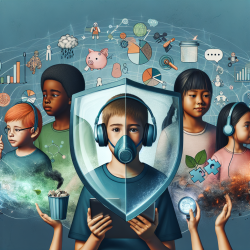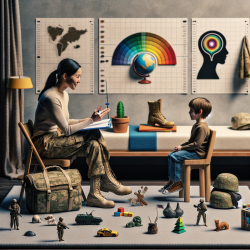Introduction
In the realm of pediatric healthcare, managing perioperative anxiety is crucial for improving surgical outcomes. A recent narrative review explores the innovative approach of using nature-based mindfulness programs via virtual reality (VR) to address this issue. This blog delves into the potential of such interventions, encouraging practitioners to enhance their skills and consider further research.
The Challenge of Pediatric Perioperative Anxiety
Over 75% of children undergoing surgery experience significant anxiety, which can complicate recovery. Traditional interventions often fall short, especially for older children. Mindfulness-based interventions (MBIs) have shown promise in reducing mental health symptoms, but they can be challenging for novices. Virtual reality offers an engaging platform to practice mindfulness, potentially bridging this gap.
Virtual Reality: A Promising Tool
VR provides an immersive environment that can enhance mindfulness practice by minimizing real-world distractions. This technology can simulate natural settings, which have been shown to improve mood and decrease stress. Despite its potential, the combined effects of VR and mindfulness in pediatric surgery remain underexplored, presenting a significant research opportunity.
Integrating Nature, Mindfulness, and VR
Combining nature-based settings with mindfulness in VR can create a powerful intervention. Natural environments are known to reduce stress and improve psychological well-being. When coupled with mindfulness, they can enhance attention regulation, emotional regulation, and self-perception. VR can make these practices more accessible and engaging for children.
Research and Clinical Implications
While preliminary findings are promising, rigorous research is needed to validate the efficacy of VR-based MBIs in reducing pediatric preoperative anxiety. Future studies should focus on optimizing VR environments, tailoring mindfulness exercises, and exploring long-term effects. Practitioners should consider these interventions as part of a comprehensive perioperative care strategy.
Conclusion
Nature-based mindfulness programs using VR hold great promise for reducing pediatric perioperative anxiety. By fostering a sense of presence and emotional regulation, these interventions can improve patient experiences and outcomes. However, challenges such as cost, training, and accessibility must be addressed. Further research is essential to unlock the full potential of this innovative approach.
To read the original research paper, please follow this link: Nature-based mindfulness programs using virtual reality to reduce pediatric perioperative anxiety: a narrative review.










